China artist Ai Weiwei gets his passport back
- Published
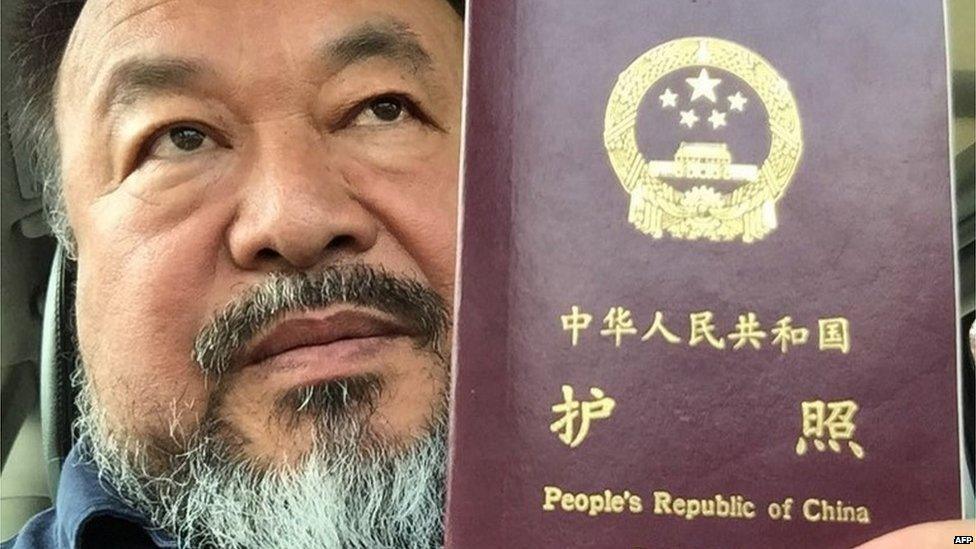
Ai had his passport taken away in 2011
Dissident Chinese artist Ai Weiwei is free to travel again after authorities returned his passport after more than four years.
The 57-year-old posted a picture, external of himself and the document on Instagram, saying police had given it to him on Wednesday.
It was confiscated in 2011 when he was detained for 81 days without charge.
The artist said his first trip would be to Germany, where his son has been living for the past year.
He told Reuters although he is legally allowed to travel outside China, visiting other countries would still depend on whether they issue him visas.
But Ai added he was not surprised the passport was returned.
"[The authorities] said they would return me my passport for many years," he said.
"They've never said they would never give it to me, except that it has dragged on for four years."
'Wonderful news'
Following the announcement, the Royal Academy of Arts said Ai -who is an Honorary Royal Academician - would travel to London in September for a landmark solo exhibition.
"This is wonderful news for Ai Weiwei, his family and for artists worldwide," said Tim Marlow, artist director and co-curator of the exhibition at the Royal Academy.
"We are delighted to announce that he will be joining us as we finalise the installation of his exhibition."
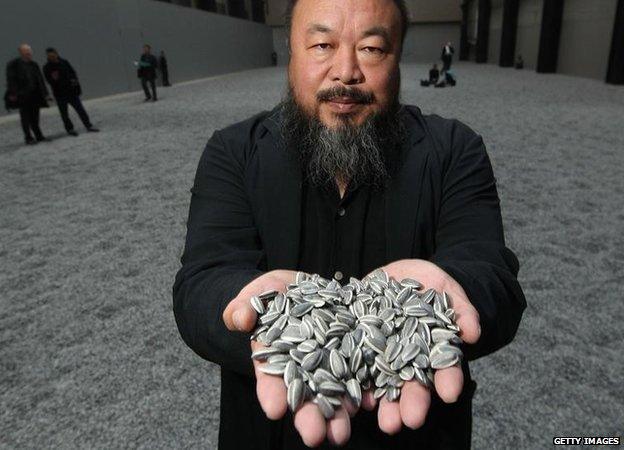
One of Ai Weiwei's most famous British installations was Sunflower Seeds at Tate Modern in 2010
The show, which will include significant works from 1993 onwards - when Ai returned to China after a decade in New York - will also feature new site-specific installations.
Ai said police did not give him "any additional conditions or warnings" for the return of his passport, saying it was "very relaxed".
He added he could not say why authorities decided to return it to him now, but he took it to mean "there aren't any problems".
The artist was arrested in 2011 during a government crackdown on political activists. He was held over alleged crimes of bigamy and tax evasion, but was released without charge.
At the time, Ai's detainment caused outcry with many artists joining international calls for his release.
He was later given a 15 million yuan (£1.5m) fine for evading taxes, although the artist maintains the charges were politically motivated in retaliation for his criticism of the Chinese government.
- Published13 February 2015
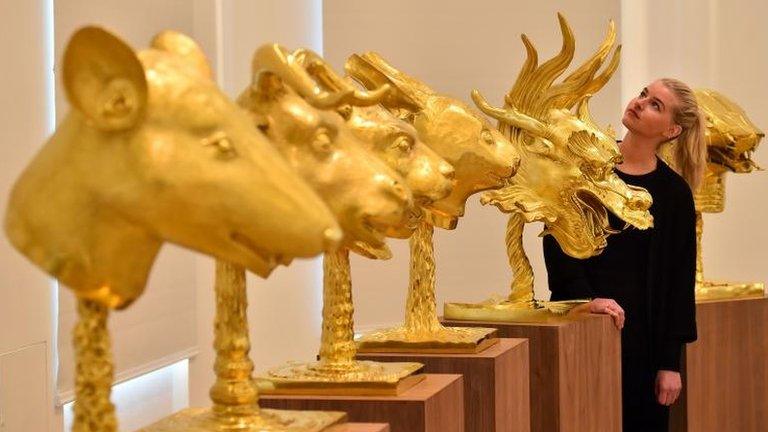
- Published22 June 2012
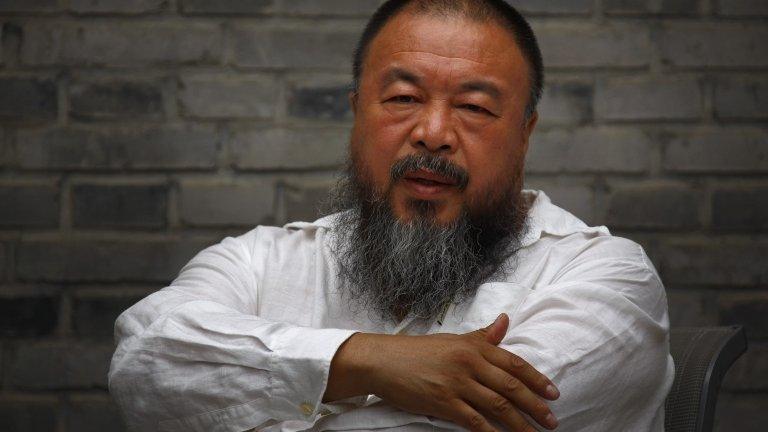
- Published20 July 2012
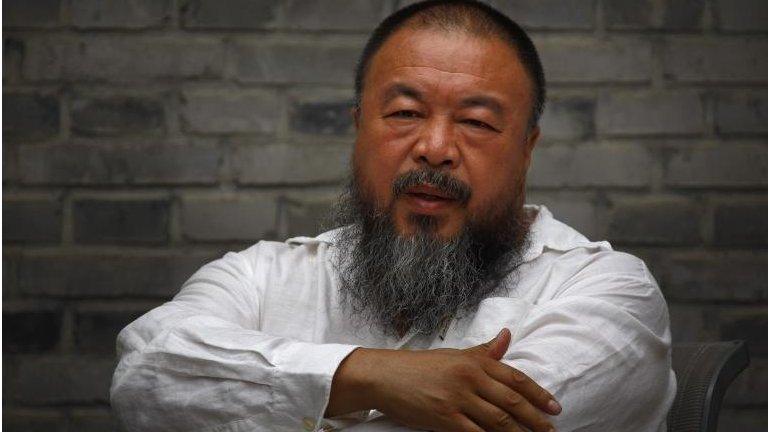
- Published4 April 2012
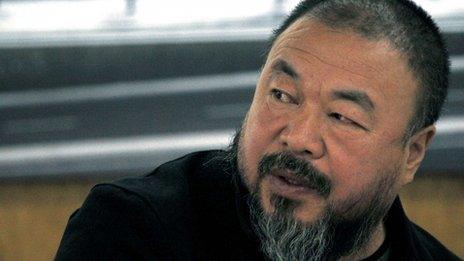
- Published6 January 2012
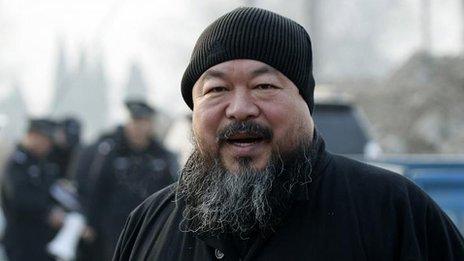
- Published5 March 2012
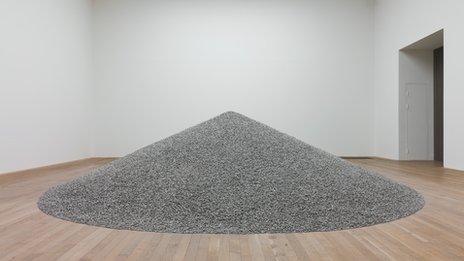
- Published4 April 2011
- Published20 July 2012